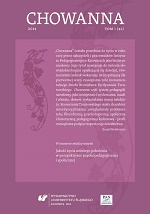Comparison of attitudes towards stuttering among Polish and English university students
Comparison of attitudes towards stuttering among Polish and English university students
Author(s): Marta Węsierska, Kenneth O. St. LouisSubject(s): Psychology
Published by: Wydawnictwo Uniwersytetu Śląskiego
Keywords: attitudes towards stuttering; questionnaire survey; POSHA-S; students; Poland; England
Summary/Abstract: The results show that a vast majority of members of society – either in reality, or only in hypothetical terms, maintain a stigmatizing attitude towards people who stutter. Earlier studies show what attitudes people reveal towards stuttering in various groups of respondents, that is, students, parents, or speech therapists. The article discusses research studies that aimed to tell differences between attitudes towards stuttering among students in Poland an in Great Britain. Each participant was asked to fill in a questionnaire survey POSHA-S (Public Opinion Survey of Human Attributes-Stuttering). The questionnaire studied six areas related to attitudes and knowledge on the speech disorder, stuttering – that is, attitudes towards stuttering, one’s knowledge on stuttering, knowing someone who is suffering from this disorder, one’s own assessment of communication skills, a participant’s opinion on a general social level of tolerance towards stuttering, as well as the level of knowledge on this disorder. The results gained by the Polish research team show that participation in workshops concerning the problem of stuttering leads to a better understanding of the problem, as well as the increase in knowledge on this disorder, and finally, to a general rise of tolerance. Comparative results gathered by both groups – the Polish and English one – have showed that English students manifest more open attitudes towards the problem, and they also have a broadened knowledge on the subject. However, Polish students maintained that their knowledge on the disorder was more extensive, and that they received higher notes in terms of general tolerance. In both countries, reading a text on stuttering before filling in the questionnaire had a positive impact on the attitudes towards the disorder. An acquaintance with a stuttering person occurred interdependent with higher notes in terms of attitude, general tolerance, as well as the assessment of one’s knowledge on stuttering. The above results prove that attitudes towards people who stutter might change due to one’s acquaintance with such a person – both personal contact and by means of a video recording. Moreover, the results show a further need for a deeper analysis of attitudes towards stuttering. Spreading the results in terms of attitudes towards stuttering is a significant factor in the process of raising awareness on this subject in society.
Journal: Chowanna
- Issue Year: 2014
- Issue No: 42 (1)
- Page Range: 263-284
- Page Count: 22
- Language: English

